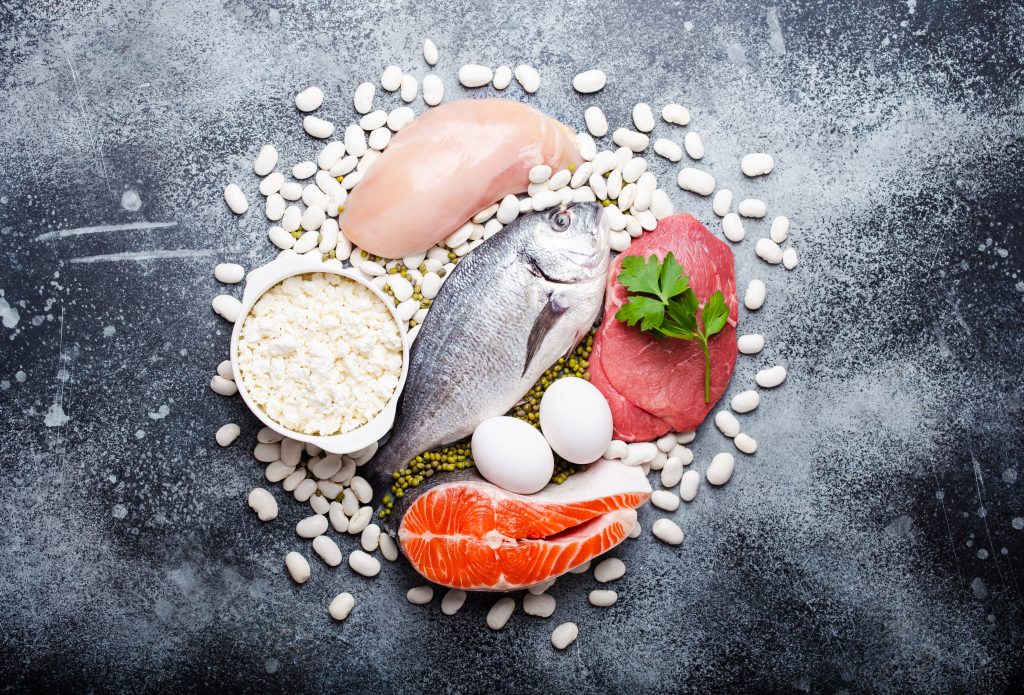5 Essential Nutritional Tips For Athletes And Fitness Enthusiasts

If you like to work out and play sports and want to get healthier and better at what you do, you need to watch what you eat. I can’t stress enough how important good food is because it has a direct effect on your health, energy, and muscle strength. Giving athletes the right nutrition can help them get stronger, get their muscles to heal faster, and change the way their bodies look. For sports nutrition, it’s important to eat a wide range of foods, such as fruits, vegetables, lean meats, whole grains, and healthy fats. It also includes nutritional supplements like protein powder and sports drinks in order to meet the increased dietary needs of active individuals. By prioritizing sports nutrition, athletes and fitness enthusiasts can unlock their full potential and excel in their chosen activities.
1. Eat a Balanced Diet
It is important for sports and exercise fans to eat a healthy diet to improve their health and performance. A well-balanced diet makes sure they get all the energy and nutrients they need to keep up with their exercise and keep their bodies working at their best.
Different foods from different food groups should be part of a healthy diet. Lean foods, like chicken, fish, and lean beef, are great places to get high-quality protein, which your muscles need to grow, fix, and heal. Complex carbohydrates, which are found in whole-grain bread and grains, give the body energy.
Eating plenty of fruits, veggies, and leafy greens will make sure you get enough vitamins, minerals, and antioxidants, all of which are important for your immune system, muscles, and general health. Also, these foods have fiber, which helps your body digest food and keep a healthy weight.
Along with carbs and protein, good fats are also very important. Essential fatty acids help keep the brain healthy and lower inflammation. Nuts, nut butters, and fatty foods are all good sources of these acids.
2. Increase Protein Intake
It is very important for sports and exercise fans to eat more protein. As an important nutrient for athletes who want to improve their ability, protein is needed for muscle repair and growth.
Muscles are stressed and damaged when you work out. Protein helps these cells heal and grow back, which speeds up the healing process and lowers the risk of getting hurt. In addition, getting enough protein can help your muscles grow, which can make you stronger and last longer.
Protein also helps you feel full longer because it makes you satisfied. This could help people who are trying to control their weight or lose weight. Getting more protein can help you control your hunger and keep you from eating too much.
Lean cuts of meat, chicken, fish, beans, and lentils are all great sources of protein. Not only do these foods have protein, but they also have vitamins and nutrients that your body needs.
It is important to follow best practices to get the most out of protein. Spread your protein intake out over the course of the day by having it at each meal and snack. Eating protein right after working out can also help muscles heal faster. Combining protein with carbohydrates can help muscles heal faster and make glycogen replacement even better.
3. Choose Heart-Healthy Foods
It is very important for sports and exercise fans to choose heart-healthy foods. For these people to be able to keep up their physical exercise and keep their heart health, they need to eat right.
Heart-healthy foods not only help you do better in sports, but they also lower your risk of getting heart disease. Athletes can get the protein they need without the extra heavy fats that can raise the risk of heart problems by choosing lean foods like skinless chicken and lean beef.
Another great pick that is good for your heart is whole-grain bread. It has fiber, which helps digestion and is good for your heart, and complex carbs, which give you energy over time.
Another healthy food that athletes should eat is nut butters like almond butter. They are full of fats that are good for your heart, like monounsaturated fatty acids, which lower bad cholesterol and protect against heart disease.
It’s possible to enjoy some dark chocolate and still be healthy. Flavonoids, which are found in dark chocolate, are antioxidants that can help heart health by lowering inflammation and making blood move better.
Not only does eating these heart-healthy foods help with sports ability, but it also improves your general health and well-being. Athletes and exercise fans can improve their physical ability and protect their heart health by making these choices a priority.
4. Stay Hydrated with Sports Drinks and Water
Athletes and exercise fans need to stay fresh to keep up their best performance and avoid getting dehydrated. Being properly hydrated helps keep the body’s fluids in balance and helps keep the body’s temperature stable, smooth joints, and move nutrients around.
Water is the best drink for staying hydrated, and you should always drink it first, during, and after exercise. It has no calories, is easy to get, and is necessary to keep you from getting dehydrated. However, sports drinks can be helpful for hard workouts that last more than an hour or make you sweat a lot.
Sports drinks contain electrolytes, carbs, and water to make up for the fluids and nutrients that you lose when you work out hard. Electrolytes, like sodium, help keep the body’s fluid balance and keep muscles from cramping. Getting energy from carbs quickly is important for muscles that are working.
When you drink fluids, timing is very important. To stay properly hydrated, you should drink 16 to 20 ounces of water or sports drink at least 4 hours before you work out. Athletes should drink 7–10 ounces of water every 10–20 minutes while they work out to stay refreshed. It is important to drink an extra 16 to 24 ounces of fluid for every pound of body weight lost after working out to replace the fluids you lost through sweat.
The American College of Sports Medicine also says that people who work out should eat or drink things that are high in sodium to help their bodies keep water and recover the sodium they lose through sweat. Some of these are sports drinks and salty snacks like pretzels.
5. Supplement Your Diet with Vitamins and Minerals
For sports and exercise fans to perform at their best and stay healthy, they need to add vitamins and minerals to their diet. Here are five main reasons why it’s a good idea to take vitamin and mineral supplements:
- Meeting Nutritional Needs: Exercising hard can make you need more nutrients, and it can be hard to get all the vitamins and minerals you need from food alone. Taking supplements can help fill in any nutritional gaps and make sure you get all the nutrients you need every day.
- Better Recovery: Vitamins and minerals are very important for recovery because they help the body do things like fix muscles, keep the immune system working, and make energy. Taking extra nutrients like zinc, vitamin C, and vitamin E can help your body heal faster and feel less tired.
- Having more energy: B vitamins are necessary to turn food into energy and keep nerves working properly. People who are athletes often need more energy, and taking extra B vitamins can give them the extra boost they need during hard workouts.
- Enhanced Performance: Iron and vitamin D are two vitamins and minerals that are very important for improving sports performance. Vitamin D helps bones stay healthy and muscles work properly, and iron helps get oxygen to muscles. Taking supplements can help keep you from getting deficits and improve your ability.
- Injury Prevention: Calcium and vitamin K are two nutrients that are very important for keeping bones healthy and avoiding injuries. Taking supplements to get enough of these vitamins and minerals can lower the risk of stress fractures and make bones healthier in general.
Considerations Before Supplementing:
Even though vitamin and mineral pills can be helpful in many ways, it’s important to be careful and talk to a doctor before starting any nutrition plan. They can help you figure out what you need, suggest the right dose, and talk to you about any worries or possible drug problems you may be having.
Don’t forget that vitamins should not be used instead of a healthy diet. A meal full of nutrients and a range of whole foods is always the best choice. A pill here and there can be useful, but it shouldn’t be your only source of vitamins and minerals.

Conclusion
In conclusion, players and exercise fans need to eat a healthy diet to improve their health and performance. Athletes can make sure they get all the vitamins, minerals, and macronutrients they need by eating a range of nutrient-dense foods, like fruits, veggies, lean meats, and whole carbs. Lean foods give you high-quality protein to help your muscles grow and fix themselves, and whole grains give you long-lasting energy. Fruits and veggies are full of minerals, vitamins, and antioxidants that help your immune system work better and improve your general health.
Heart-healthy foods should be your first choice. Nuts, olive oil, fatty fish, and other nuts provide vital fatty acids that help keep your heart healthy. In the end, a healthy diet gives you the energy and nutrients you need to keep up your exercise, speed up your healing, and improve your sports performance. Athletes and fitness fans can reach their goals and stay healthy by choosing foods that are good for them and well thought out.








